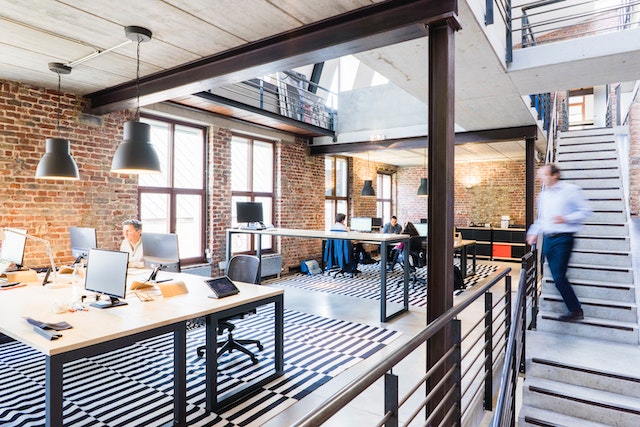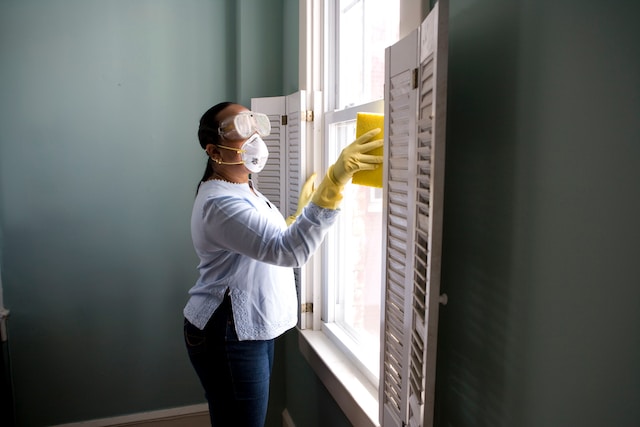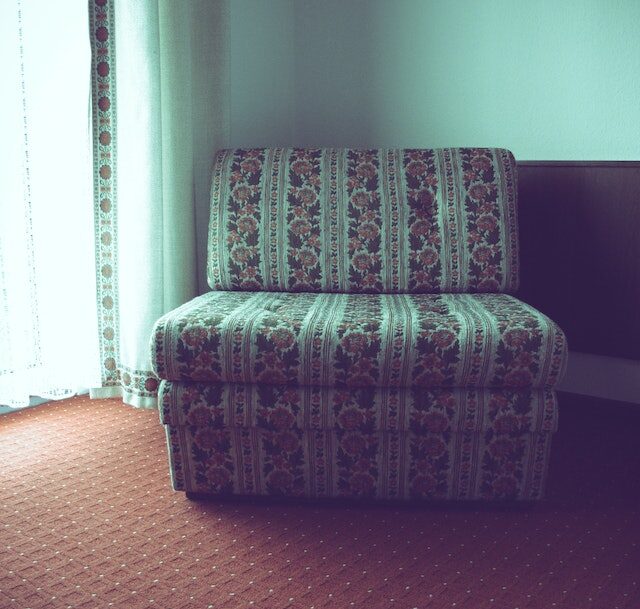Homeowner or business owner, no one wants to deal with a burst pipe or watch helplessly as firefighters extinguish a blaze. Even a small amount of damage can be expensive and time-consuming to repair, and it will necessitate adjustments to your everyday operations.
While the feelings of loss, frustration, and confusion are the same no matter what your property is used for, the process of restoring your home or business to its former glory is slightly different depending on how the structure is set up. However, regardless of what type of property is experiencing water damage, a competent Portland water damage restoration team can make all the difference in how you and your building bounce back. Let’s take a look at how water damage differs between commercial and residential properties so that you’re better prepared for the process when your friendly restoration experts arrive.
Commercial properties are often larger, so the damage may be more widespread
An office building, warehouse, or big box store that suffers from water damage will generally have more widespread damage simply because its footprint is far more than the typical single-family home. Even for apartments, which are closely packed with their neighbors, the damage is likely going to be limited to a single unit or floor rather than all throughout the structure. This means that commercial water damage restoration is going to take longer and involve more moving parts than that for a home, townhouse, or condominium.
Business buildings are more complex and may have stricter safety standards
In addition to being larger, commercial properties have more complex structures and systems in place in comparison to a home, which is usually simpler. For example, an office complex will have sprinklers, specialized plumbing with more connections, electrical systems hooked up to alarm and communications systems, and a more powerful HVAC unit with larger ductwork. This is assuming a typical retail store; others, such as hospitals, restaurants, and manufacturing facilities, will also have specialized equipment that needs to be assessed by experts.
While all buildings have regulations in place for safety, commercially zoned properties will have greater standards as they are open to the public. This means that restoration experts have to be mindful of ensuring compliance with all local codes and conditions.
There are some common causes for water damage in the two types of property, but a few differ too
All buildings, big or small, are susceptible to certain forms of water damage, some of which can be prepared for and some of which cannot. For example, flooding can affect any property which happens to be in a flood zone, no matter what purpose the building has. Any business or residence that has working plumbing may suffer from a burst pipe or leak, and any room that has an appliance like a dishwasher or washing machine may experience water damage if the machine malfunctions.
However, there are some forms of water damage that are specific to commercial operations, and this revolves around both sprinkler systems and large-scale industrial equipment. Contrary to the name “sprinkler,” fire suppression actually involves a huge amount of water, all of which will soak into every available surface.
The other hazard here is large industrial appliances. Depending on their application, these machines may contain enormous repositories of water, much more than the average dishwasher or washing machine could ever generate, even if a pipe bursts. This water could be highly contaminated, such as quenching pools for steelmaking or liquid baths for fabric manufacturing, which could pose a risk to restoration teams and necessitate extreme caution. Some might also be at risk of catching fire, which would necessitate intense efforts by firefighters to put out the blaze.
Commercial water damage means lost revenue, causing a greater sense of urgency
No homeowner wants to be forced out of their home by water damage, but they’re also not in danger of bankruptcy if they have a decent home insurance policy. If the home is completely uninhabitable at the moment, most insurance companies will provide the policy owner a stipend in order to stay elsewhere, such as at a hotel or Airbnb, so that they can continue to go to work and school while their home is being renovated. It may also be possible to replace some of their material belongings, though some are priceless treasures that no amount of money can recoup.
On the other hand, a business owner who cannot utilize their property to serve clients or customers will very likely experience lost revenue, some of which may not be compensated by the insurance company. Though many retail business owners insure their merchandise and, therefore, can purchase more stock, manufacturing companies may have just lost weeks or months of work, which will need to be painstakingly created. Others, like restaurants, cannot serve their clientele if their premises are unsafe, which means their cash flow will suffer immensely.
All this leads to a time crunch for business owners, who need to get operations on track as soon as possible. Given that these projects are also more labor-intensive due to the greater size, when a commercial property is damaged, it’s all hands on deck for their water damage restoration company. In one bright spot, it’s often easier to replace items for companies, because they are more standardized and there is less sentimental attachment to them.
Thankfully, both commercial and residential property owners can rely upon insurance companies and water damage restoration teams for help
If you have any building, it should be insured, as this will assist you in recouping losses should the unthinkable happen. While every insurance policy is different, most will cover the most common causes of water damage, such as plumbing issues and mechanical failures, though flooding is generally a separate issue that needs its own insurance. Commercial properties are required to have specialized policies tailored to their industry, while residential properties will be covered with a more standardized homeowner’s insurance.
Regardless of whether you’re a business owner or homeowner, though, the water damage restoration company will bill directly to your insurance, which relieves you of one worry during this process. You can rest assured that you’ll get top-notch service that considers the specific needs of your building – and your own needs, too.



